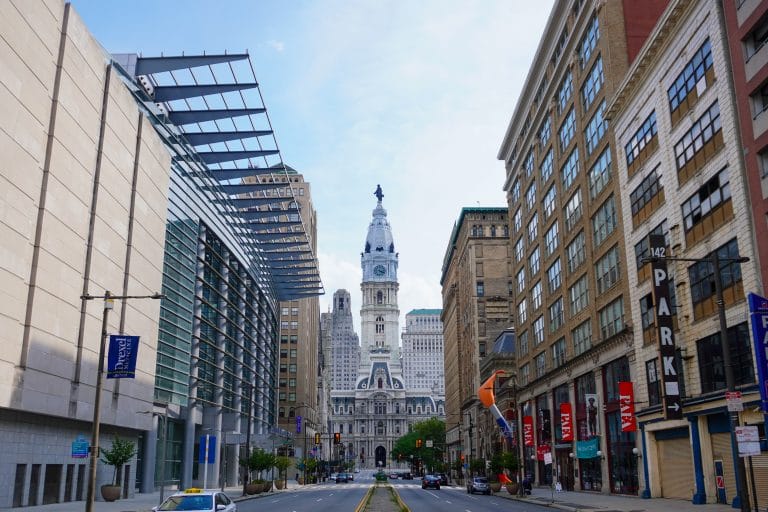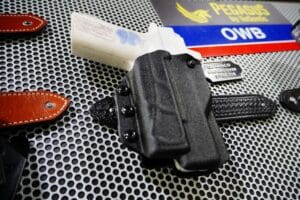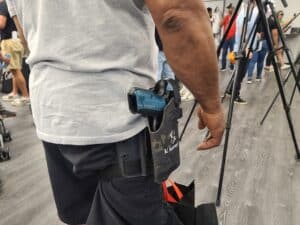Philadelphia’s latest and most far-reaching attempt to enact its own gun laws was brotherly-shoved out of court on Wednesday.
In a unanimous 6-0 decision, the Pennsylvania Supreme Court tossed the city’s lawsuit challenging Pennsylvania’s firearm preemption laws (FPLs), which prohibit local governments from passing gun laws stricter than the state’s laws, as unconstitutional. The Court ruled that Philadelphia’s legal theory for bringing the case did not withstand scrutiny.
“[A]ppellants have failed to state a legally cognizable claim that the FPLs are unconstitutional or otherwise infirm on the asserted grounds that: (1) the FPLs violate substantive due process; (2) the FPLs violate the state-created danger doctrine; and (3) the FPLs interfere with Philadelphia’s delegated duties under the LHAL and DPCL,” Justice Kevin Brobson wrote in Crawford v. Commonwealth.
The ruling hands a defeat to the elected officials of Pennsylvania’s largest city, who have fought for years with the state government over their desire to pass restrictive gun laws. It also casts doubt on the ability of gun-control advocates to replicate Philadelphia’s legal strategy in the 40 or so additional states that also have similar firearm preemption statutes.
Philadelphia filed suit over the state over the right to pass local firearms legislation in 2020, arguing that Pennsylvania’s preemption statute violates its residents’ rights to life and liberty as provided by the state constitution. That argument, which was supported by national and local gun-control groups as the first of its kind nationwide in challenging state preemption laws, fared poorly in the lower courts before it ultimately made its way up to Pennsylvania’s high court last September.
Once before the Supreme Court, Philadelphia officials again made their case that state preemption laws violated their “right to ‘enjoy and defend life and liberty'” because that fundamental right includes “a right to protect themselves from gun violence by means of local regulation.” They cited permit-to-purchase requirements, one-gun-per-month limits, and extreme risk protection orders as measures they would like to pass but cannot under the FPLs. They allege that this state-imposed restriction deprives the city and its residents of their substantive due process rights.
The Pennsylvania justices, who are elected and currently include five Democrats and two Republicans, determined that such an argument is not a legitimate constitutional claim.
“Here, Appellants seek an interpretation of Article I, Section 1 of the Pennsylvania Constitution that would designate the individual right to ‘defend life and liberty’ not just as a collective right, but as a collective right to self-defense from private acts of gun violence, specifically by means of local legislation,” Justice Brobson wrote. “Simply put, Appellants provide no basis upon which to conclude that the right to ‘defend life and liberty’ set forth in Article I, Section 1 is so broad as to encompass such a right.”
Brobson accused the city’s attorneys of “rely[ing] upon general constitutional principles and paint[ing] their argument with overly broad strokes, using an amalgamation of pronouncements and concepts gleaned from inapt case law and secondary sources to support their position.”
“In sum, despite Appellants’ efforts to shine a light on a purported ‘collective right to self-defense by local regulation’ housed in Article I, Section 1 of the Pennsylvania Constitution, their mere incantations of generalized constitutional principles and the like simply fail to provide a sufficient basis for us to conclude that such a right exists,” he concluded.
A spokesperson with Philadelphia Mayor Cherelle Parker’s (D.) office told The Reload they were “disappointed with this result.”
“The Parker administration will continue to seek remedies to Philadelphia’s deadly gun violence crisis through every legal tool in the toolbox at our disposal,” the spokesperson said.
UPDATE 11-20-2024 8:02 PM EASTERN: This piece has been updated with comment from the Philadelphia Mayor’s Office.






